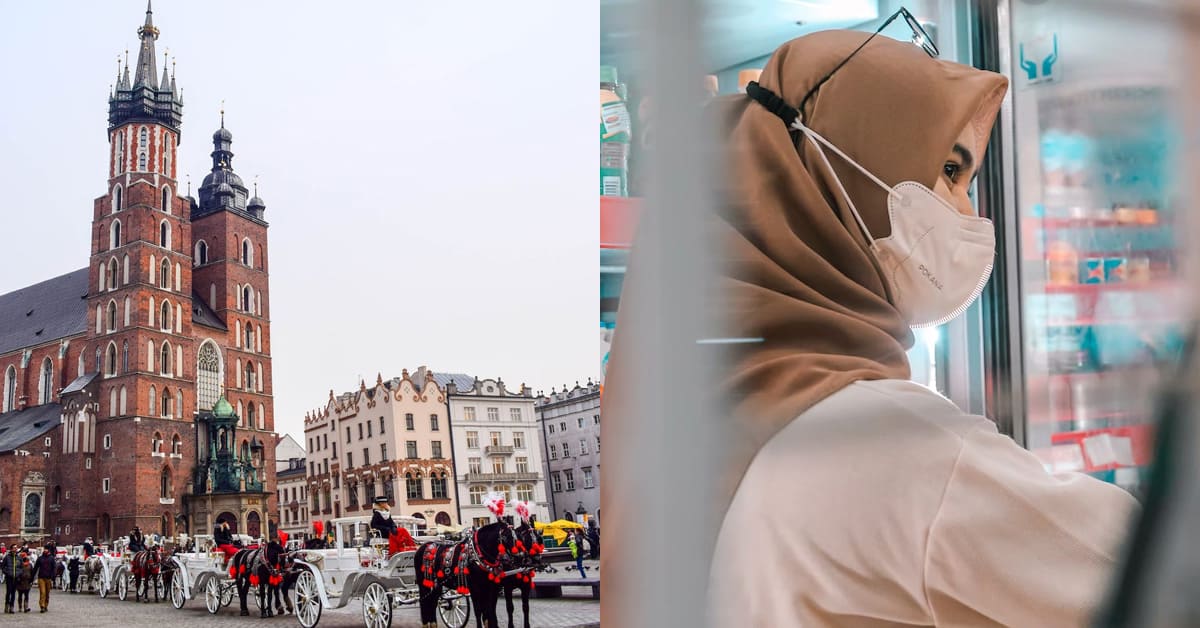Krakow is a city located in southern Poland, known for its rich history, stunning architecture, and vibrant culture. While it may not be the first destination that comes to mind for Muslim travellers, Krakow has a lot to offer for those seeking a unique and enriching experience. With a growing Muslim population and a range of halal options available, Krakow is becoming an increasingly popular destination for Muslim travellers.
From exploring the city’s historic landmarks to sampling traditional Polish cuisine, there are plenty of opportunities to immerse oneself in the local culture and history. Whether you’re looking for a spiritual retreat or simply a chance to explore a new city, Krakow is a destination that should not be overlooked.
Is Krakow Muslim-friendly?
Is Krakow Muslim friendly?
Krakow, like many European cities, is generally welcoming and tolerant towards people of different cultures and religions, including Muslims. However, the Muslim population in Krakow is relatively small, and there are limited facilities such as mosques and halal restaurants.
While it may not be as Muslim-friendly as some other European cities, Muslims should still be able to enjoy their visit to Krakow with some planning and research.
Does Krakow have halal food?
Yes, Krakow does have halal food options available. There are several halal restaurants and food stalls in the city that serve a variety of halal dishes. Some popular halal restaurants in Krakow include Kebab King, Istanbul Kebab, and Al-Amir.
Additionally, many non-halal restaurants also offer halal options on their menus.
Is Krakow safe for Muslim?
Krakow is generally considered a safe city for Muslims. Poland is a predominantly Catholic country, but it is also a secular state that respects religious freedom. There are several mosques and halal restaurants in Krakow, and the local Muslim community is growing. However, as with any city, it is always important to exercise caution and be aware of your surroundings.
Are there many Muslims in Krakow?
According to the 2011 census, there were around 1,200 Muslims living in Krakow, which is a small percentage of the city’s population.
Is Krakow a good place to live in for Muslims?
Krakow is a diverse city with a small but growing Muslim community. There are several mosques and halal restaurants in the city, and the local government has made efforts to accommodate the needs of the Muslim community.
However, like any city, there may be some challenges and it is important to research and consider factors such as job opportunities, housing, and social integration before making a decision to live in Krakow as a Muslim.
As a Muslim, what should I prepare before travelling to Krakow?
Here are some general tips for any traveller visiting Krakow:
- Check the weather forecast and pack accordingly. Krakow experiences cold winters and warm summers, so make sure to bring appropriate clothing.
- Research the local customs and culture to ensure that you are respectful of the local community.
- If you plan to visit religious sites, such as mosques or Islamic centers, make sure to dress modestly and remove your shoes before entering.
- If you require halal food, research halal restaurants or grocery stores in the area.
- Learn some basic Polish phrases to help you communicate with locals.
- Make sure to have all necessary travel documents, such as a valid passport and visa if required.
- Consider purchasing travel insurance to protect yourself in case of any unforeseen circumstances.
- Familiarize yourself with the local transportation system to make getting around easier.
- Bring a prayer mat and any other necessary religious items with you.
- Finally, be open-minded and respectful of the local culture and customs.
What is the largest mosque in Krakow?
The largest mosque in Krakow is the Al-Mabarrat Mosque, which was opened in 2017. It is located in the district of Podgórze and can accommodate up to 1,000 worshippers.
The mosque was built by the Shia Muslim community in Krakow and is open to all Muslims regardless of their denomination. It features a prayer hall, a library, and a community center. The mosque is also open to non-Muslim visitors who are interested in learning about Islam and its practices.

